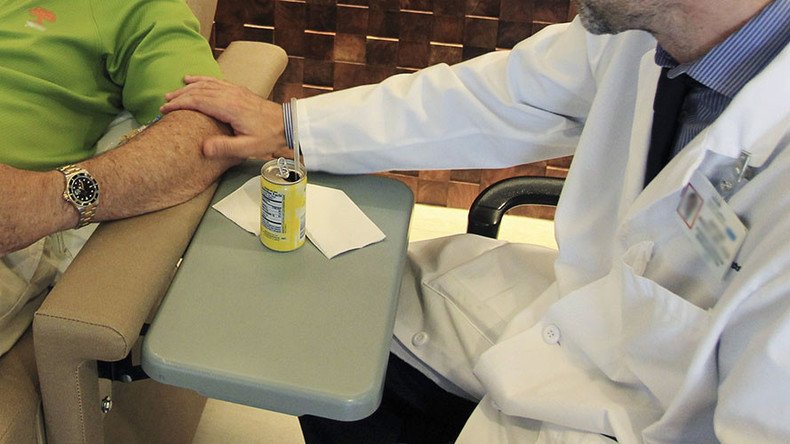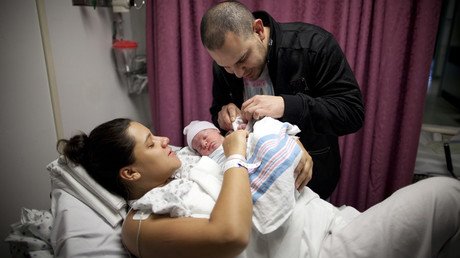Democratic & Republican doctors offer different care ‘on politicized issues’ – study

Doctors are trained in science, but it appears that doesn’t necessarily mean there isn’t room for politicizing when it comes to treating patients. A new study found, when it comes to certain issues, care varies based on a physician’s party affiliation.
Curious about whether doctors are able to leave their politics at the door during routine check-ups, researchers at Yale University dug into the voter registration records of more than 20,000 physicians.
The researchers then surveyed more than 200 of them to see how they would act in various scenarios that could arise during a patient check-up, or when reviewing a person’s medical history.
Physicians from both the Republican and Democratic parties gave the same advice on such matters as riding a motorcycle without a helmet, depression, or alcohol abuse.
However, other issues were treated in very different ways, depending on the doctor’s party affiliation.
“The evidence suggests that doctors allow their political views to influence their professional decisions in the medical exam room,” said Eitan Hersh, an assistant professor of political science and co-author of the study. “Just as patients choose physicians of a certain gender to feel more comfortable, our study suggests they may want to make a similar calculation based on their doctor’s political views.”
When doctors were given a fictional scenario involving a woman who had already undergone two abortions, Republican doctors were twice as likely to say they would discourage future terminations – even if the woman wasn’t currently pregnant.
In a scenario with a patient who used recreational marijuana three times a week, Republican doctors were 64 percent more likely to say they would discuss marijuana’s legal risks, and 47 percent would likely urge them to cut back on cannabis.
Gun safety was another point of disagreement between the doctors. Democratic physicians were 66 percent more likely to urge parents of small children not to store guns in the home, while GOP doctors preferred to ask about how safely firearms were stored.
Eitan Hersh said the findings show that a doctor’s political views may affect their advice on many issues, including those concerning transgender health and end-of-life care.
He said that when patients choose a doctor, “they don’t necessarily know what they’re getting ahead of time,” AP reported.
Co-author Dr. Matthew Goldenberg, a Yale psychiatrist, concluded that “we don’t leave things at the door,” noting that “both patients and practitioners should be aware that there are these biases.”
Hersch said he hopes the study, which was published in the journal Proceedings of the National Academy of Sciences on Monday, will lead to further research in the area.













